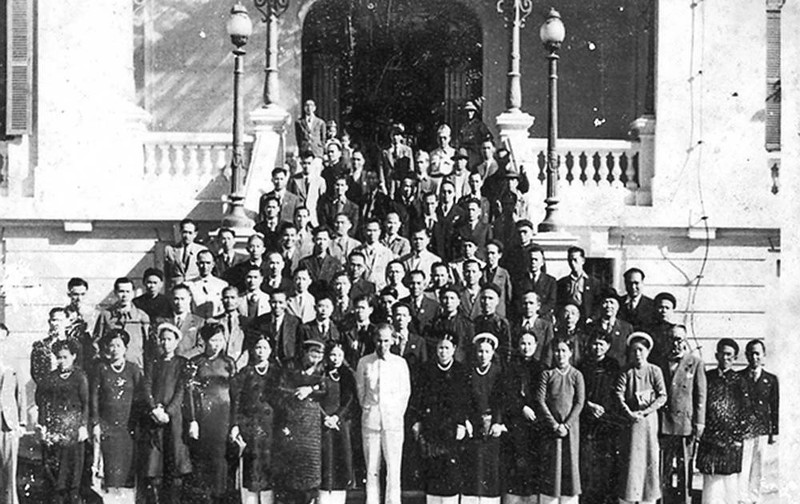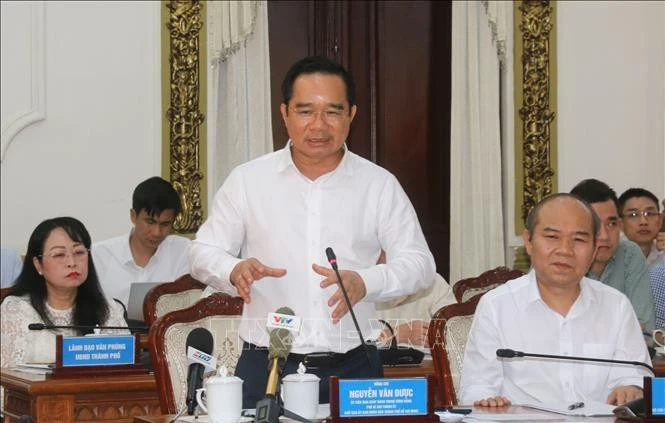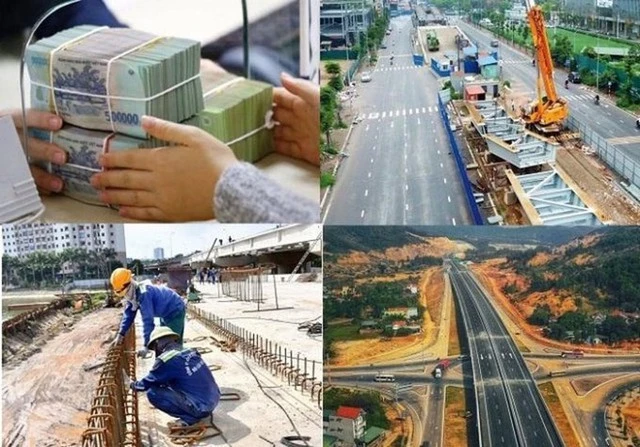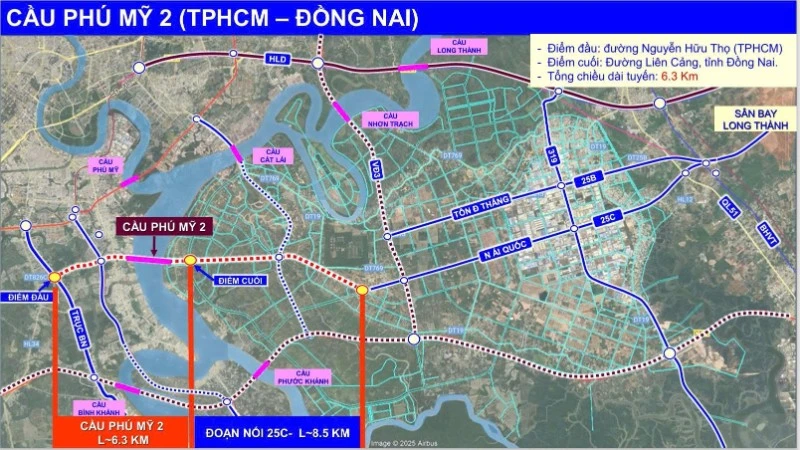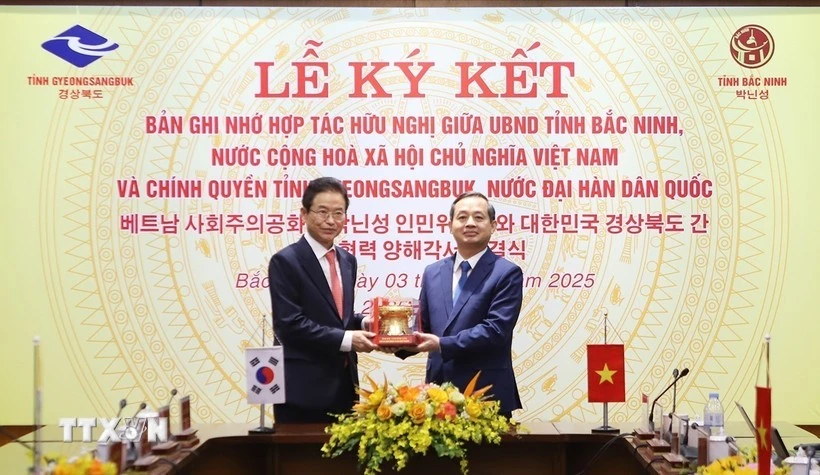A commitment that touched the heart
On October 13, President Ho Chi Minh sent a letter to the industry and trade sector, encouraging patriotic capitalists to overcome difficulties and join the effort to rebuild the country. In that letter, he wrote: “While other sectors in our nation are striving to secure full independence for our country, the industry and trade sector must work to build a strong and prosperous economic and financial foundation.” To reassure entrepreneurs at a time when Viet Nam had just declared its independence, President Ho Chi Minh pledged: “The People’s Government and I will wholeheartedly assist the industry and trade sector in this reconstruction effort. The affairs of the nation and of the home always go hand in hand.” "Wholeheartedly"—a word that speaks from heart to heart. There is no slogan, no way to honour businesspeople more moving than this sentence from Uncle Ho.
He also affirmed an unchanging truth: “A prosperous national economy means that the businesses of industrialists and merchants are prosperous.” He urged them to swiftly join the Industry and Trade Association for National Salvation and encouraged them to spend their capital to serve the nation and people.
Drawing on Ho Chi Minh’s thought regarding the private sector, especially in building a socialist-oriented market economy, the Communist Party of Viet Nam (CPV) has introduced various policies to promote private sector development. Notably, his 1945 letter is considered the Party’s first document on private economic development. Along with the country’s Doi Moi (Renewal) process, the private sector was officially recognised in the 6th National Party Congress (December 1986). Since then, its role and position have been increasingly affirmed through various Party resolutions and orientations. The Party and State’s consistent and sound policy of viewing the private sector as a vital pillar has propelled it to grow vigorously, contributing significantly to the nation’s achievements over nearly four decades of renewal. However, the private sector still faces many challenges—chief among them are barriers to accessing key resources, especially land and credit. These obstacles have prevented many private enterprises from growing, or discouraged them from seeking expansion.
To unlock and harness the full potential of the private sector in the new era, the Politburo issued Resolution No. 68/NQ-TW on May 4, 2025, aimed at developing the private economy. This document reflects a bold and innovative mindset and aims to remove all barriers so the private sector can truly become a key driver of the national economy.
New responsibility, new mission
Dr. Nguyen Dinh Cung observed that the private sector has now been placed in its rightful historical role—in contrast to the previous mindset that recognition would only follow development. Resolution No.68 mandates the complete removal of outdated perceptions and biases against Viet Nam’s private sector. It calls for an accurate assessment of its vital role in national development, encourages entrepreneurship and innovation among individuals and businesses, and upholds respect for enterprises and entrepreneurs. Notably, it recognises entrepreneurs as “soldiers” on the economic front, guaranteeing their full rights to property ownership and freedom to do business in any field not prohibited by law.
Dr. Cung also noted that the Party’s unprecedentedly progressive mindset in this Resolution addresses nearly all existing obstacles hampering private sector development—from institutional bottlenecks and resource access, to investment environment and workforce training. The language is clear, practical, and policy-oriented, enabling direct implementation.
Bureaucratic inertia in the public administration, combined with domestic and international market difficulties, particularly the recent trend of criminalising economic relationships, has dampened the enthusiasm and willingness of businesses and entrepreneurs to invest. This has adversely affected the mobilisation of resources for economic development. Therefore, the Resolution’s emphasis on clearly distinguishing criminal from administrative and civil liabilities in handling violations, abolishing the “ask–give” mechanism, and eliminating the thinking of "if we can't manage it, we ban it", carries great significance. These measures aim to revive the spirit of entrepreneurship and reassure the business community to invest confidently and contribute to the nation’s growth.
Resolution No.68 is also the first Party document to address the role of household businesses. It proposes genuine and effective support for small, micro, and household enterprises through foundational solutions—such as legal framework improvement, free access to digital platforms, shared accounting software, legal consulting services, and training in management, accounting, and taxation. These are long-standing weaknesses that have hindered businesses and household enterprises from scaling up, often placing them in a “grey area” within Viet Nam’s private sector landscape.
As of the end of 2024, Viet Nam’s private sector consisted of over 940,000 registered businesses and more than 5 million household enterprises. Collectively, they contributed around 50% of the country’s GDP, over 30% of total state budget revenue, and employed approximately 82% of the national workforce.
Dr. Le Duy Binh, Managing Director of Economica Viet Nam, believes that the strong message of Resolution No.68 directly addresses pressing issues in the country’s enterprise development. Among these is the overwhelming dominance of small and micro businesses and the notable absence of mid-sized firms. Assoc. Prof. Dr. Tran Dinh Thien finds the most compelling aspect of the Resolution is that, in every difficult or impasse-ridden phase of national development, the private sector has been once again called upon and entrusted with a new mission and responsibility.
Eighty years ago, heartfelt words from the head of state awakened the entrepreneurial spirit and patriotic desire to serve the nation among Vietnamese capitalists. Today, as the Party raises the flag once more, there is reason to believe that the private sector will rise promptly, becoming the leading force to steer the national economy out of difficulties and toward advancement in this new era.
